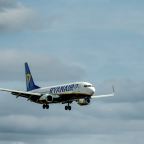
Bhanu Choudhrie’s Alpha Aviation Uses Flight Simulators for New Pilot Training and Experienced Pilots Meeting Recency Requirements
The world is reeling from the COVID-19 outbreak. There have been widespread epidemics in the past, but this is the first pandemic in more than 100 years. Across the globe, people have been ordered to stay in their homes. Businesses have been forced to shut their doors. For some companies and corporations, the losses from what they thought would be a temporary closure turned out to be so great they have not survived.
The airline industry has been severely impacted. Flights have reduced passenger capacity, and many have been cancelled altogether. The need for pilots has dramatically decreased, and many other industry employees have been terminated due to cutbacks.
In April 2020, the reduced need for pilots caused United Airlines to postpone its pilot training class for new pilots. Other airlines have done the same.
It’s not easy to remain positive during times like this, but as Bhanu Choudhrie says, "the good news is this industry has shown incredible resiliency in the past even under some very trying circumstances" and will again. Aviation is a necessary service and eventually the pandemic will be over, or at least minimized. The number of flights will begin to increase. China has already resumed domestic flights and international flights will follow shortly. Other countries are slowly opening back up as well.
In the United States, some domestic flights have resumed. There is a concern that as domestic and international flights reach pre-COVID-19 levels, there may be a shortage of qualified pilots.
Bhanu Choudhrie is an entrepreneur and founder of Alpha Aviation Group. AAG’s pilot training school keeps new and established pilots up-to-date on requirements for renewing their pilots’ licenses. Choudhrie recently authored an article titled “COVID-19 and the Future of Pilot Training” to discuss this issue.
Bhanu Choudhrie on COVID-19 and the Future of Pilot Training
In addition to the downturn in the industry due to COVID-19, there are other problems that affect the aviation industry and contribute to the pilot shortage in the U.S. One challenge is that the Federal Aviation Administration mandates that pilots retire at age 65. Meanwhile, new pilots face costly requirements to enter the commercial pilot market that prove prohibitive to many.
Alpha Aviation Group is dedicated to training future commercial airline pilots, primarily in underserved areas including the Philippines, East Asia, South Asia, and the Middle East. This is accomplished with flight simulators that train new pilots and keep the skills of experienced pilots sharp.
The Role of Flight Simulators in Pilot Training
Flight simulators are now gaining an even greater role in aviation training and will continue to do so even when airlines get their fleets back in the air. Flying requires constant practice for pilots to maintain the highest level of competence. Therefore, airlines have recency rules, which means pilots who operate aircraft carrying passengers must perform a specified number of take-offs, landings, and approaches within a certain period of time before they can pilot another flight.
While fleets are grounded, it will be impossible for pilots to meet these recency qualifications unless they spend more time in a simulator. Simulator training for an experienced pilot and crew typically involves working together to solve a particular problem, while training for new pilots focuses on the correct features of a normal flight. Both new and experienced pilots get the most out of the simulator training sessions when they treat the experience as though it were a real flight.
It is expected that airlines will require their pilots to undergo simulator training before they can return to work after a prolonged break from flying. Simulators provide complete training for cadets by recreating multiple scenarios that ensure the pilots can effectively complete aircraft operations.
Latest Advancements in Simulator Training
Alpha Aviation Group recently purchased an Alsim-Al 172 flight simulator. It has two cockpit seats simulating a Cessna 172, and a flight deck. It is ideal for training new pilots and for enhancing the skills of experienced pilots. Using flight simulators for training substantially cuts operational costs in several ways, including saving fuel.
Aviation Industry Outlook for the Future
This is not the first time the aviation industry has experienced a hardship. In 2003, the SARS outbreak resulted in major setbacks, but three months after the industry had suffered its greatest loss, it bounced back. The worldwide financial crisis of 2008 also had a negative effect on the industry, which lasted until 2010, but then it rallied.
Through the years, terrorist attacks, war in various world regions, oil crises, and natural disasters have all negatively affected the airline industry. But the industry is resilient and has always bounced back.
The COVID-19 pandemic is unprecedented, but there are already signs of recovery. Cathay Pacific is now flying to Europe and the United States, which could indicate a positive trend. No matter what happens in the long-term, the virus is expected to have a great effect on the global demand for air travel for at least the rest of 2020.
Choudhrie remains positive during this ongoing crisis. By focusing on flight simulators, he has identified opportunities that will help the aviation industry as a whole, reduce the cost of pilot training, and shape the long-term future of the industry.
Meta Description
Use of flight simulators at Bhanu Choudhrie's Alpha Aviation Group allows for new and experienced pilot training to meet recency requirements in response to cancellation of pilot training programs due to COVID-19 and grounded fleets.













